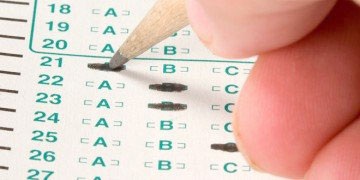Kids are not the only ones who sometimes think hiding the truth is the easiest way to handle a problem.
Take for example the latest National Report Card that was released last week.
Though it generated a couple of headlines here and there, no one is saying much about the National Assessment of Educational Progress’ latest findings.
The nationwide test is given to a random sampling of students in the fourth and eighth grades every two years.
You might have read that our state’s fourth- and eighth-graders’ test scores in math and reading dropped.
True, the drops hardly qualify as precipitous — eighth-graders scores dropped a point in math and three points in reading since 2017.
But no one clarified that our state’s fourth- and eighth-graders national average math scores are nine points below the national average and six points below that average in reading.
If you read more you would learn only about 30% of West Virginia’s fourth-graders are proficient in math and reading. Which is almost encouraging when compared to the percentage of eighth-graders proficient in those subjects — about 25%.
Nationwide, a tad more than a third of eighth graders are proficient in reading and math. About a third of fourth graders are proficient in reading, while more than 40% of fourth graders are proficient in math.
Finally, you’ll probably want to know how we rank among all states’ assessments … or not.
No we did not rank No. 50 in either grade or subject. However we did bring up the bottom tier in each grades’ scores. And all of those scores were classified as significantly below the national public average.
While some will point to the slight declines in these scores or even tepid progress in others the truth is gloomy: Public education has stalled out.
As anyone in the school reform world should tell you, successful turnarounds are extremely tough to pull off — and they don’t happen overnight.
Though we had our reservations about passage of the state’s education reform legislation this summer it may help. The increased spending on public schools contained in that bill and recent pay raises for teachers are both steps in the right direction.
However, this is no time for our state to drop public education off the agenda for a while.
Indeed, we encourage legislators to be willing to tweak that omnibus education bill and for teachers to try new approaches, especially in math.
To put any test scores or grades in perspective everyone must ask themselves: How can we do better?
Facing this truth is never easy but something we must do to succeed.




